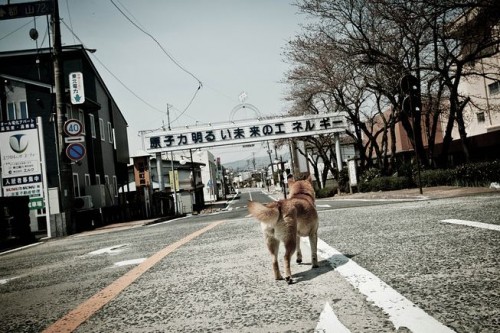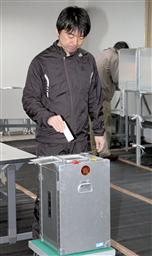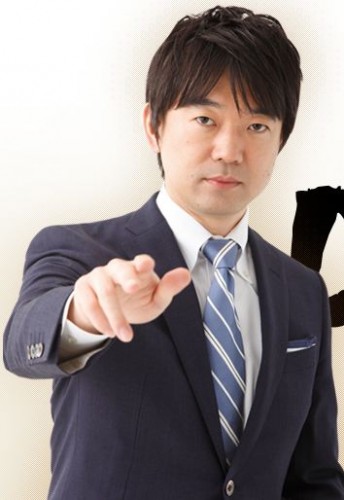(Update: Jake Adelstein has left a response in our comments section)
Friday morning the news broke that Japanese regulators shut down AIJ Investment Advisors, a small investment management firm, because its 183 billion yen in funds under management had mostly gone missing. The company specialized in managing pensions for smaller companies. It seems likely that a massive fraud has taken place.
Scandals like these are not obscure, victimless crimes – they directly affect people’s lives. For instance, semiconductor equipment maker Advantest apparently had 8% of its pension assets invested with the firm. These funds are very unlikely to be recovered at this point. That’s 8% less the firm has to pay its workers post-retirement, which it will have to make up for somewhere. The unwitting employees of AIJ will no doubt lose their jobs as well. A company the size of Advantest might be big enough to weather a loss like that but 100+ other clients that were wooed by the attractive returns might not be so fortunate. Layoffs, bankruptcies, ruined lives, misery all around.
The fund reported consistent returns regardless of market conditions, achieved with exotic financial instruments–classic signs of financial fraud that corporate pension managers should have seen coming a mile away. It’s too early to know exactly what happened, though. According to the WSJ, the ratings agency R&I called attention to the suspiciously favorable returns in 2009.
Too early to call “yakuza”
Even though the facts have yet to come out, that hasn’t stopped Jake Adelstein, among others, from promoting a possible yakuza connection. That’s understandable since he bases his media career around being the West’s yakuza expert. However, I take issue with him coming out so early in favor of an organized crime angle. He doesn’t know any better than the rest of us, at least judging from the justifications he has trotted out so far.
He argued in favor of a yakuza connection in the Olympus scandal not too long ago, and the New York Times ran a report that the police were looking into yakuza involvement. However, the independent investigative committee found no evidence of yakuza and I have not seen any major refutation on that point.
Despite seemingly getting it wrong on Olympus, Jake has again taken to Twitter to play up a connection in the AIJ scandal. As with Olympus, the New York Times has run an article that echoes and bolsters his claims. The feed and the article make lots of claims that I will paraphrase here:
- AIJ is a Yamaguchi-gumi front (Jake)
- This is true because one of the board members (not the head) was convicted of paying protection money to a corporate extortionist (sokaiya). And once someone has paid millions in protection money and gotten caught, that means they will turn around and steal billions (I am assuming because the yakuza tells them to). (Jake)
- The head of the firm is also ex-Nomura (NYT)
- The DPJ-led government turns a blind eye to financial fraud because the former FSA minister may have accepted yakuza donations at some point. (Jake)
- The Nomura connection and the dates when AIJ and another firm received approval to offer financial services means the AIJ scandal “shares many characteristics with the Olympus scheme” (NYT)
- Jake sent an email to a friend explaining his suspicions about AIJ in 2008. He says that his sources told him AIJ manages the Yamaguchi-gumi’s pensions.
I am ready to be wrong, but at this point I am not convinced. These unconfirmed claims, appeals to authority, and guilt-by-association tactics do not amount to actual evidence to justify labeling this a yakuza crime. Yet, anyway.
It may well be that the Yamaguchi-gumi raided AIJ and took all the money, or demanded favorable treatment as a customer. But a serious and contemptuous crime has apparently taken place even without a yakuza connection, so there’s no need to rush to apply a label, in my opinion. Jake and Hiroko Tabuchi of the New York Times, I beg you to please rein in your speculation until we have more facts.
Actual damage possibly smaller than 183 billion yen
It’s also worth noting that the 183 billion yen number includes potentially phony returns, so if the entire cumulative return of 245% is phony but the cash remained, that would leave AIJ with 53 billion in cash. That would leave “most of” the money missing even with most of the principal intact. That’s still a lot it’s indeed gone, but we don’t even know that much right now. And if the company has only been lying about returns that means they have likely been fraudulently collecting return-based fees.
It’s my understanding that investment managers are required to keep funds in segregated accounts at trust banks, to avoid the easy temptation of embezzlement. For example, if I buy a mutual fund, the fund manager doesn’t get to touch my money at all (unless I am totally naive). It goes into a trust, and the manager simply gives instructions on which securities to purchase based on the contract. AIJ was a “discretionary” manager, meaning that the managers had free rein over (but not direct access to) the funds as long as the action fit a pre-determined investment policy. Of course that assumes AIJ was following procedures when collecting funds. If AIJ was somehow just accepting cash and managing without a trust arrangement, that is a dreadful problem and could warrant prosecution even without any theft. The regulators’ statement (PDF) orders AIJ to “immediately confirm” the status of funds, including fund segregation. Ick.
Update: According to a story over this weekend, the firm apparently invested most of the cash in a single Cayman-registered investment trust of its own creation, which it then outsourced management of to a British-affiliated bank in Bermuda. This would suggest they may have used the funds as a way to get around fund segregation and gain access to the funds.




